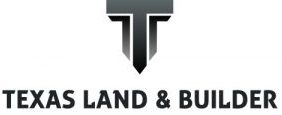Building a custom home is a dream for many, especially in the picturesque Texas Hill Country, where sprawling landscapes, rolling hills, and serene views offer an unmatched backdrop. However, when the time comes to sell your custom-built home, not all of the choices you made during construction will add to its resale value. Some features might increase its market appeal, while others may have little impact or even reduce the value. Understanding what influences resale value in the custom home market is essential for ensuring you make informed decisions during the building process.

What Adds to Resale Value
- Location and Land Size: In the Texas Hill Country, the lot and its location can significantly affect the resale value. Buyers are often drawn to homes with large, private lots offering breathtaking views of the natural surroundings. Proximity to desirable areas, like Canyon Lake, Fredericksburg, or Dripping Springs, can also add to the home’s value.
- Quality Construction and Materials: Using durable, high-quality materials that stand the test of time is one of the best ways to ensure your custom home retains value. Features like stone or brick exteriors, engineered hardwood floors, and energy-efficient windows not only enhance the home’s aesthetic but also appeal to future buyers looking for long-lasting, low-maintenance homes. In the Texas Hill Country, masonry exteriors tend to fare better against the elements and contribute to higher resale values.
- Energy Efficiency: With Texas summers being notoriously hot, homes that offer energy-efficient features such as high-efficiency HVAC systems, solar panels, and spray foam insulation are particularly attractive to buyers. These features reduce utility costs and offer long-term savings, making them a significant value add.
- Outdoor Living Spaces: The natural beauty of the Texas Hill Country lends itself to outdoor living. Features like covered patios, outdoor kitchens, and fire pits can significantly boost resale value, as they extend the home’s living space and enhance the lifestyle appeal. Buyers looking for a connection to the outdoors are willing to pay more for homes with well-designed, usable outdoor spaces.
- Functional, Open Floor Plans: Modern buyers tend to favor open floor plans with ample natural light and a functional layout. Homes that offer spacious kitchens, great rooms, and flow between indoor and outdoor spaces tend to perform well in the resale market. Additionally, flexible spaces such as home offices or bonus rooms that can be adapted to various needs are highly desirable in today’s market.
Features That Have Little Impact
- High-End Customization: While you may have splurged on a custom wine cellar, a home theater, or luxury spa bathroom, these features may not have the same value to potential buyers. Often, the tastes and preferences of the buyer don’t align perfectly with the original homeowner’s vision. Over-personalization can lead to higher initial costs with minimal resale impact unless you find the right niche buyer.
- Landscaping Upgrades: Although well-maintained landscaping is important, going overboard with elaborate gardens or water features may not translate into higher value. In the Texas Hill Country, where water conservation is often a concern, overly lush landscapes may not be practical or desirable for buyers. Simple, native landscaping that is easy to maintain is more appealing in this region.
- Luxury Appliances: While high-end, built-in appliances can make life easier for the current homeowner, they are not always a big draw for buyers. Kitchen upgrades in general are important, but buyers are more interested in functional, updated kitchens than in luxury appliances that may soon become outdated.
What Reduces Resale Value
- Poor Design Choices: Unusual design elements that are too specific to your personal taste can deter potential buyers and negatively impact resale value. Overly bold color schemes, eccentric room layouts, or design choices that don’t align with typical market expectations can be off-putting. In the Texas Hill Country, buyers often prefer homes that reflect a blend of Hill Country rustic charm and modern practicality.
- Inadequate Maintenance: If a custom home has not been properly maintained, it will likely suffer in the resale market. Buyers are wary of homes that show signs of neglect, whether it’s peeling paint, outdated roofing, or deferred repairs. Homes that require immediate work are often passed over in favor of turnkey properties.
- Unnecessary Luxury Additions: Building a home gym or sauna may seem like a good idea, but these features often don’t appeal to the broad range of buyers you’ll encounter when selling. Over-the-top luxury additions that don’t offer broad appeal can end up being seen as unnecessary costs, reducing the home’s overall market value.
- Garages Converted to Living Space: While adding more interior square footage may seem like a way to increase value, converting a garage to a living area can actually reduce it. In the Texas Hill Country, where larger lots and more land are common, buyers often want a garage for parking and storage. The loss of this space is seen as a disadvantage by most buyers.
Conclusion
When building a custom home in the Texas Hill Country, it’s important to keep the future resale market in mind. Focusing on high-quality materials, energy efficiency, and functional designs will help ensure that your home holds its value over time. On the other hand, overly customized features and poor design choices can detract from resale value. Understanding the balance between personalization and market appeal is key to maximizing the long-term value of your custom-built home. Whether you plan to stay for a few years or a lifetime, thoughtful planning and execution will ensure your home retains its value for when the time comes to sell.
